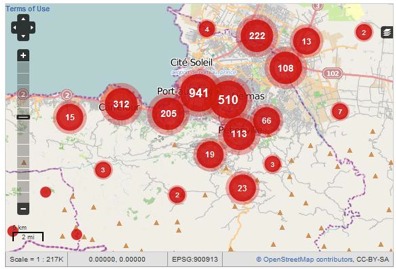Twitter Predicts Haitian Epidemic
When news is being made, Twitter is usually the first to know. But now Twitter is doing more than helping us know what has happened — it is being used to predict what will happen.
Twitter has already been used to successfully predict movie grosses and even future stock trends. For a while, scientists and researchers have espoused the idea that Twitter could be used to predict more pressing matters like crimes and communicable diseases. Now there is data showing that Twitter feeds forecasted a cholera outbreak in Haiti in 2010 faster than traditional sources.
According to a study by scientists at Children’s Hospital Boston and Harvard Medical School published in the American Journal of Tropical Medicine and Hygiene, social media provided faster more accurate real time information on the deadly outbreak of cholera in Haitithan government surveillance reports. Authors of the study searched for #cholera on Twitter. In the two weeks before health officials reported on the outbreak, #cholera was mentioned in 65,728 Tweets. Researchers also used data from HealthMap, a media surveillance platform, in their study. Using Twitter, researchers were able to monitor the progression of the outbreak.
Social Media Shows Epidemic Two Weeks Before Officials
Indeed, researchers found that Haitian Tweets provided information on the cholera outbreak an astonishing two weeks before health officials did, and government sources reported on it. Not only did Twitter and social media feeds provide information faster, but the data provided was also just as accurate.
Such advanced knowledge of outbreaks can provide crucial time for health officials to respond and control the spread of the illnesses. Additionally, social media also provides a way to trace the origin of outbreaks. Since the cholera outbreak, 520,000 Haitians have been infected, and 7,000 have died from the illness.
Social media is a low-cost, rapid way to deal with the spread of illness sooner. Using the free, immediate information provided on Twitter is an efficient way to detect future epidemics and then intervene with preventative vaccines and outreach. This study confirms that social media provides an early warning platform.
Who knows what the future of crowdsourced-data will hold. At Reset we look forward to reporting on this story, so stay tuned.









